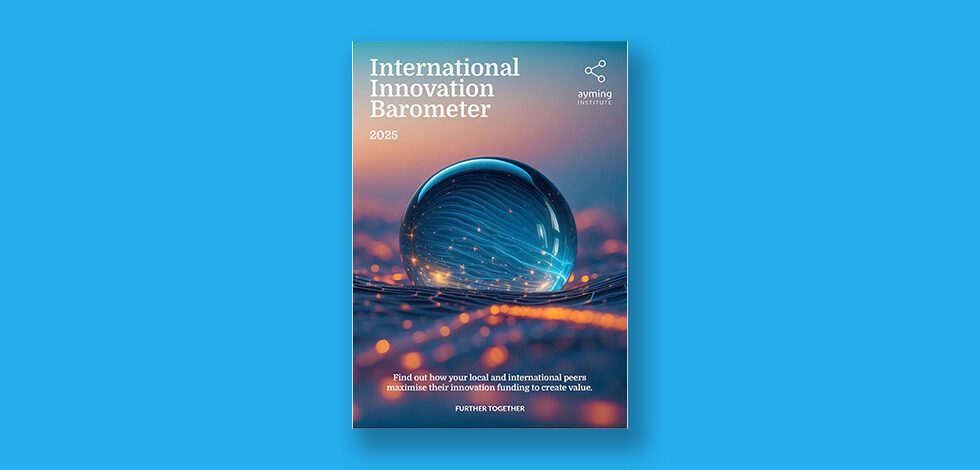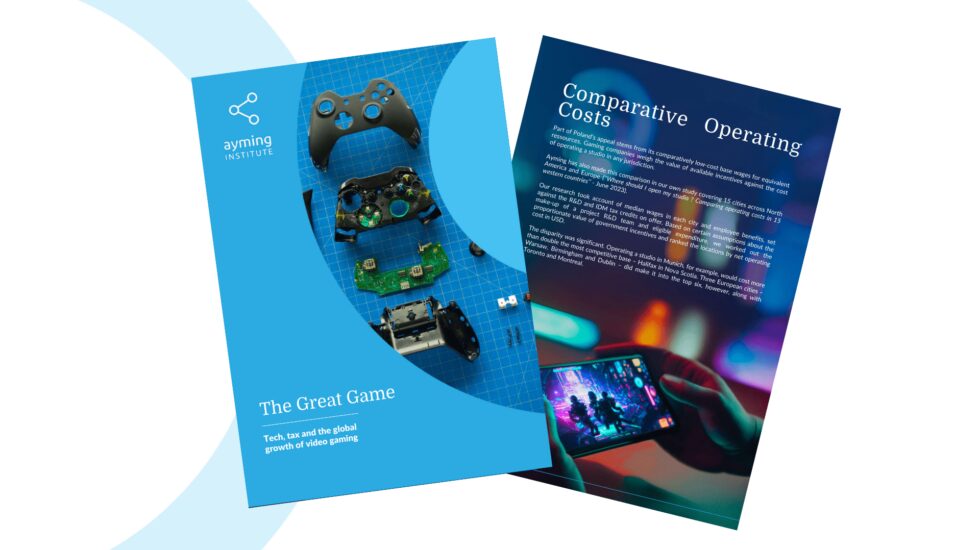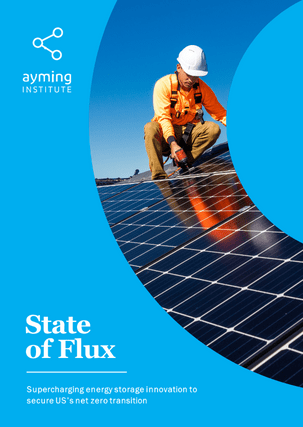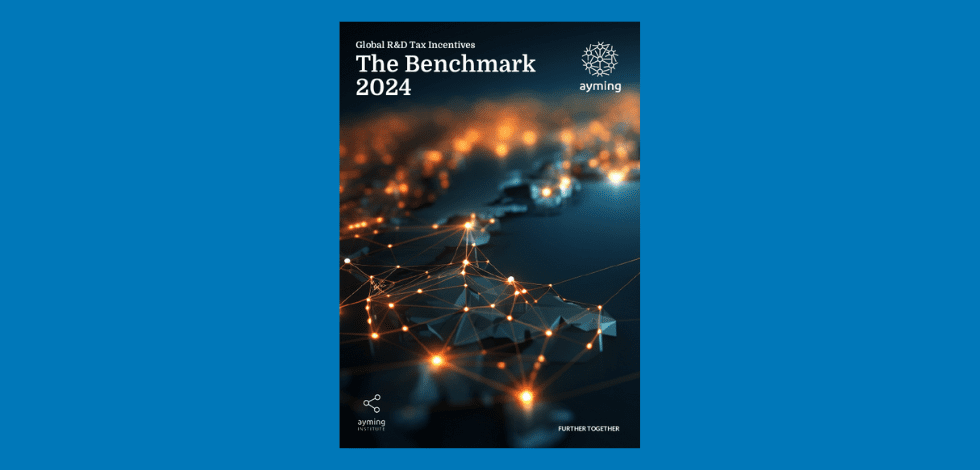The Great Recession framed Lauren Highsmith’s Master of Economics degree. After a stint as an analyst in industry, she soon found her niche in R&D tax consulting, and became Manager in January 2019. The economics of the jobs market now favours the STEM professionals driving innovation, says Lauren – it is crucial that we stress the importance of these fields for our younger generations.
Why did you choose economics?
I was originally a business and finance major, and took an economics class as a part of the core curriculum. I just really enjoyed it, found it was very intuitive and made a lot of sense. After taking that first class, I decided to add economics as an additional major.
You ended up doing a master’s?
I graduated in 2011, unfortunately right in the middle of the Great Recession in the US, so unfortunately there weren’t a lot of jobs out there in the financial sector. I decided to go to grad school to wait out the downturn with hopes I’d be able to differentiate myself and eventually get a job. I chose economics because I enjoyed it and felt it would be more of a differentiator than an MBA. Also, it was interesting during the recession to see the application of economics happening in real time with the Fed funds rate and everything connected with the money and mortgage markets.
How did you end up in consulting?
My first job was in industry, as a business analyst for a major food distribution service, sourcing groceries for restaurants, schools, prisons, you name it. I did that for almost two years, performing metrics on all logistics to make routes as profitable as possible. Then I heard about a consulting opportunity in research and development tax credits. So I got into this industry very early in my career, moving to Ayming after about three years.
How did the work environment compare?
For me, the culture seemed very intriguing. The people are very highly educated and sharp. Also, I’m much more of a team-oriented person, which is encouraged at our firm and within most consulting firms. I played softball all my life, I’d rather work in a team environment, and in other industries, oftentimes individuals with degrees similar to mine are working on their own.
What appealed to you about R&D consultancy?
With tax consulting, or consulting in general, you know you’re helping the business you’re advising. We get money back for our clients. It is rewarding for us to get to see what they do with their tax credits, whether they hire more engineers, buy a new piece of equipment, or expand their operations or facilities.
What qualities enabled your rapid progress?
In order to succeed as a consultant you have to be able to take feedback and criticism. You’re going to have bad days, but those can be the times you learn most. On top of that you have to have a great memory: we’re memorising so many different codes and regulations, ensuring our clients are compliant. And then obviously you have to be diligent and work hard. You’ve got to be willing to make sacrifices. You might have a client that’s on the East Coast and you’re going to make sure that you’re there for a meeting at 7:00am. Or work nights or weekends every once in a while. One reason I’ve been able to do well is being dedicated to getting the job done and meeting deadlines.
What does the R&D Manager’s job involve?
I manage a team but I also run my own files. I am responsible for direct contact points with the client. That includes leading meetings, conducting interviews, assessing financials, determining what projects and spending qualify for the credits, putting together the calculation, and report. Then as the manager of the team, I’m overseeing my team’s projects, making sure we’re not missing any deadlines, and I’m part of the quality control review process.
“We’re seeing a cultural shift as women become more prevalent in R&D roles.”
What’s your view on women in STEM and business?
We’re seeing a cultural shift. I’m noticing over time that women are becoming more and more prevalent in these roles. For example, at a custom manufacturing company, the director of R&D was a woman and so were a lot of the employees working in the lab. Similarly, women are engineering HVAC systems and 3D-printing; it is no longer out of the ordinary to see women in these roles.
Is it becoming easier for women to advance?
I think that women are still bridging the gap between the traditional definitions of family versus the more progressive movement. It is still more difficult for women in industry, and in general, to balance work and family life once you start to have children. That’s probably one of the biggest challenges that women face.
Are companies making that any easier?
In the US, maternity leave falls under temporary disability, with lacklustre benefits and time off, that not all companies are required to follow. That being said, maternity leave has improved in recent decades amongst select companies and industries. A lot of companies are starting to make changes because they realise from the cost-benefit analysis, retaining a good employee by providing this benefit is actually less expensive than the costs associated with replacing them. A new mother with inadequate time off is more likely to leave the workforce either temporarily or permanently. Employers are beginning to realise that replacing these good employees can affect their bottom line.
What values are important to you in your work?
I think the biggest one is integrity. Producing something that you can stand behind, that you’re proud of, is one of my biggest motivators. At the end of the day, you want to put your client in the best possible situation, because you want to maintain that relationship long term. Performing your due diligence is a big driver.
And what about company culture?
I believe a diverse culture, whether it be gender or ethnicity, is always best if your group or company is to continue to grow and evolve. It has been my experience that wherever there’s a lack of diversity you can get into a rut of groupthink and stagnation. Once you have diversity and truly encourage that type of collaboration, differences in gender, ethnicity, religion, marital status, etc will be unnoticed. Right now, the biggest challenge is encouraging this to be the norm in STEM industries.
What does the Ayming culture mean for you?
Ayming appreciates its workforce, providing flexibility and growth to maintain high-performing employees. It provides great perks such as the ability to work from home once a week and ample vacation and holiday leave. Ayming encourages each of its employees to take charge of their lives, to develop their own work-life balance and career path. It is very refreshing because I know that when the time comes I will be able to maintain that balance so I can be both a good consultant and a good mother.
What are your career plans?
I think long term this is what I’ll be doing when I retire, as long as tax credits are still around. You develop a lot of great skills. I’m a pretty shy person and hated public speaking, making presentations, etc, but through this job you’re meeting with c-suite executives, presidents, owners, and you have to refine those skills. The only other thing I’d ever be interested in potentially is politics. That’s just a pipe dream. So I think this is something I’ll be doing long-term especially as I grow my family. The only difference is I might take a step back from the project management side and be more behind the scenes.
Do young women see the full potential of STEM?
Now that I look back, I’d have loved more opportunities to be an engineer. I didn’t think I was particularly driven to excel at math or science-based subjects. It would be helpful to see these STEM fields in a real-life setting. Of course the classroom is important, but learning about how physics is applied to making a stress ball, or chemistry is used when making a body wash, might drive up interest in these subjects.
What advice would you give girls considering career options?
Do not let the lack of diversity in your classroom or company discourage you. The individuals in these fields are industry pioneers, setting future generations up for success. Yes, it will be challenging, but the rewards – both financial and personal – will be worth it. The innovators in the US are making considerably more money than those in other roles, as they should.

Lauren Highsmith—an R&D Project Manager for Ayming—has over 5 years of experience in the role. In that time she has identified and delivered over 250+ R&D Tax Credits for C-Corp, S-Corp, and LLC entity types, specializing in the telecom, manufacturing, IT/software, food & beverage, architecture & engineering, and automotive spaces.













No Comments